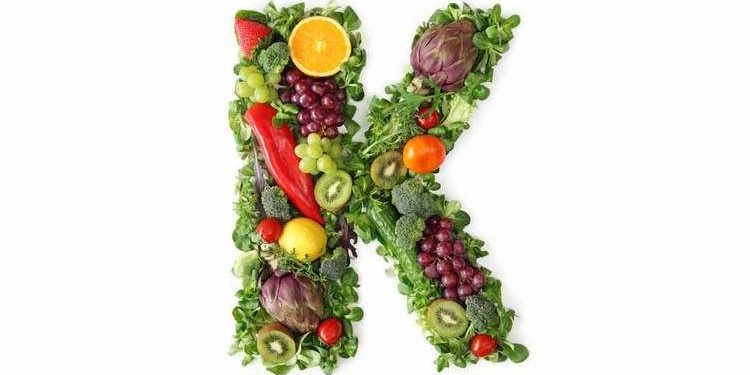Vitamin K, an essential vitamin required by the human body, keeps the bones healthy and supports blood clotting. The body stores vitamin K in the liver, and it is a fat-soluble vitamin. It is also called a clotting vitamin because it enables blood clotting. Vitamin K1 and vitamin K2 are two forms of vitamin K. Vitamin K1 helps in blood clotting, and vitamin K2 prevents bone loss and supports heart health. Calcium, vitamin D, and vitamin K2 act together to keep the bones healthy. Vitamin K2 helps the bones to absorb calcium from the bloodstream and deposit it in the bone tissues. It also prevents calcium accumulation in soft tissues like kidneys and blood vessels. A vitamin K2 supplement is taken by people who want to improve their bone and heart health. Vitamin K1 is found in the liver, heart, and pancreas, and K2 is found in the brain and kidneys.
Vitamin K2 has more health benefits than vitamin K1. It helps in maintaining skin health, bone health, and brain metabolism. Osteocalcin, which takes calcium from the bloodstream to bone tissues, is activated by vitamin K2. Osteocalcin is also needed for the formation and maintenance of healthy teeth. Vitamin K2 can also stop bone loss in patients suffering from bone-related diseases, and it protects the heart by inhibiting calcification in blood vessels. It is essential for blood coagulation which prevents external and internal bleeding. It also maintains the elasticity of blood vessels and reduces age-related bone-density issues.
Sources of Vitamin K1 and K2
Green leafy vegetables like broccoli, kale, spinach, collard green, and cabbage are natural sources of vitamin K1. Fruits like prunes, kiwis, and avocados are also rich in vitamin K1. However, the human body cannot absorb vitamin K1 from plants easily. Vitamin K2 is found in animal-sourced food and fermented food. Vitamin K2 is found in liver, egg yolks, chicken, pork, beef, and dairy products.
Types of Vitamin K2
Vitamin K2 exists in nine forms, and the most important forms are MK-4 and MK-7. MK-4 has a short half-life and is removed from the blood very quickly and taken to tissues, organs, and the brain in a short time. It is stored in the pancreas and artery. MK-7 has a longer half-life, and it is the predominant form of vitamin K2.
Benefits of Vitamin K2
- Improves bone mass
- Reduces the risk of cancer
- Regulates the level of blood cholesterol
- Reduces joint swelling in rheumatoid arthritis
- Treats stretch marks and bruises
- Maintains heart health
- Prevents calcification in blood vessels
Importance of Vitamin D
The critical function of vitamin D is to maintain the calcium level in the blood. It helps the body absorb calcium from the food, and when people don't consume enough calcium, it maintains calcium levels in the blood by drawing calcium from the bones. Vitamin D ensures that the calcium level in the blood is sufficient to meet the body’s demands.
Relation Between Vitamin D and Vitamin K2
Vitamin D increases calcium levels, and Vitamin K2 helps the body absorb calcium and store it in the bone tissues. Taking vitamin D without vitamin K increases the calcium level in the body, but the body cannot use it effectively. It raises the risk of calcium deposition in the arteries and soft tissues. This condition is dangerous as it can lead to heart attack or stroke.
A vitamin K2 supplement reduces fractures and problems associated with low bone density. It regulates calcium absorption and avoids calcification in the arteries, preventing severe heart problems. It reduces blood loss by helping blood to clot faster. Vitamin K2 also promotes flexible arteries and heart valves and boosts cardiovascular health.

























